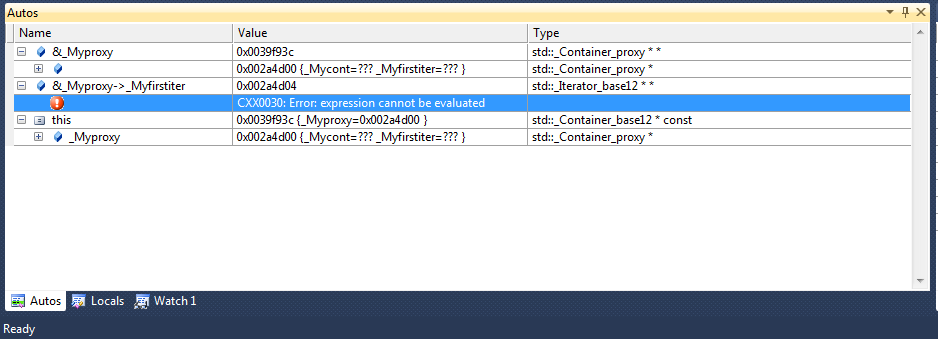Firstly, Here's my code running in VS 2010
#include <iostream>
#include <fstream>
#include <string>
#include <list>
using namespace std;
class Student
{
friend ostream& operator<<(ostream&, Student);
friend istream& operator>> (istream&, Student&);
private:
int stuId;
string name;
int gpa;
public:
Student(int, string, int);
int getStudId();
};
ostream& operator<<(ostream& out, Student stu)
{
out<<stu.stuId<< " " << stu.name<< " " << stu.gpa<<endl;
return out;
}
istream& operator >> (istream& in, Student& stu)
{
in >> stu.stuId >> stu.name >> stu.gpa;
return in;
}
Student::Student(int id=0, string nm = "", int gpa = 0.0)
{
this->stuId = id;
this->name =nm;
this->gpa = gpa;
}
int Student::getStudId()
{
return stuId;
}
int main()
{
const int QUIT = 0;
int idNum;
string name;
int gpa;
cout <<"Enter student ID number or " << QUIT << " to quit ";
cin >>idNum;
cout << "Enter Name ";
cin >> name;
cout << "Enter GPA ";
cin >> gpa;
Student aStudent(idNum, name, gpa);
fstream outfile;
outfile.open("Student3.dat", ios::app |ios::out | ios::binary);
outfile.write(reinterpret_cast <const char*>(&aStudent), sizeof(Student));
outfile.flush();
outfile.flush();
outfile.close();
system("pause");
Student aStudent2;
fstream infile;
infile.open("Student3.dat", ios::in | ios::binary);
infile.read(reinterpret_cast <char*>(&aStudent2), sizeof(Student));
//infile.seekg((0 -1) * sizeof(aStudent));
infile.flush();
infile.close();
cout<< aStudent2 << endl;
system("pause");
return 0;
}My program run just fine until the end of program, return 0, and it throw this error
First-chance exception at 0x59b4ad4a (msvcp100d.dll) in file reader and writer.exe: 0xC0000005: Access violation reading location 0x002a4d04.
Unhandled exception at 0x59b4ad4a (msvcp100d.dll) in file reader and writer.exe: 0xC0000005: Access violation reading location 0x002a4d04.
May i know what did i do wrong?
Thanks in advance



